Learn what this next generation of agents has to say about where the industry is headed—and how they fit into it.
For Elaine Gascon (pictured left), account executive at King & Neel in Honolulu, Hawaii, insurance is more than selling products—it's the answer to helping her community thrive.
Most young people grow up and leave Hawaii, Gascon shares. “So many of my classmates that I graduated with have left," she says. “We have a high cost of living; people tend to leave and start lives elsewhere."
But Gascon, a psychology major, stayed. After accepting an entry-level job with an insurance carrier, she realized that the industry offered her more than the chance to stay in her home state. “I hadn't intended to work in insurance, but the opportunity for growth was there, and I was very motivated to see how far I could go with it," she says.
Gascon was later recruited to the independent agency side, starting again in another entry-level position before moving up the ranks to establish her career handling a large book of business.
With the insurance channel in need of the next generation of talent, Gascon realized that, as a young independent insurance agent, she was positioned to highlight the solution to a problem that plagued both her community and the industry.
“I want to show people that there are real career options here in Hawaii where they can afford to stay," she says. “I'm sure it's not unique to Hawaii, but a lot of insurance agents are in their 60s and 70s and I'm in my 30s, which is considered young. What happens after that?"
“We need to, as insurance professionals, get out there more and show younger generations that insurance is a career choice that exists, and it's a good one," Gascon continues. “It's going to be vital for the future of insurance."
That's why Gascon is on a mission to get more involved and in front of youth—to help the next generation explore the great opportunities on the island in insurance.
“I'm in the Rotary Club of Ewa Beach, the community I was born and raised in," she says. “I'm very passionate about showing the children in our community that there is a future here in Hawaii. I am getting involved in the local schools in my community—especially in the same schools I attended. Maybe seeing younger professionals with similar backgrounds can inspire the youth in a different way."
“We need local people to stay for the future of our home and invest in their community," Gascon adds. “It's hard, but it's worth trying for."
Every day, young agents like Gascon are making their mark on the insurance industry. What brought them here? What makes them tick? And why are they sticking around? Learn what this next generation of agents has to say about where the industry is headed—and how they fit into it.
Account Executive
Honolulu
Age: 33
Go-to drink order: four shots of espresso a day
Desired superpower: predicting the future
Favorite candy: chocolate-covered macadamia nuts
Why do you love insurance?
I'm a quick learner, so I'm always eager to learn more. Insurance really provided me with that challenge. There's always more to learn. Everything's changing every single day with the market and new endorsements. For me, that's what kept me here in insurance.
Still using your psychology degree?
It teaches you to understand people, and the business we're in is a people business. I feel like that was definitely a good starting point. My degree and my background really help me thrive. You need to understand where people are coming from and be open-minded. I've actually met other people in the industry with the same background. It's interesting how that worked out.
Work-life balance?
It's a blessing to have a work-life balance where we can do our jobs outside of typical office hours. I have a three-year-old, and I work from home pretty much full time. I am very fortunate to be able to work full time and still be a parent and witness this critical time in my son's development. Insurance is a pretty flexible industry, and that's a definite pro for trying to recruit young professionals. You can have a good work-life balance in insurance.
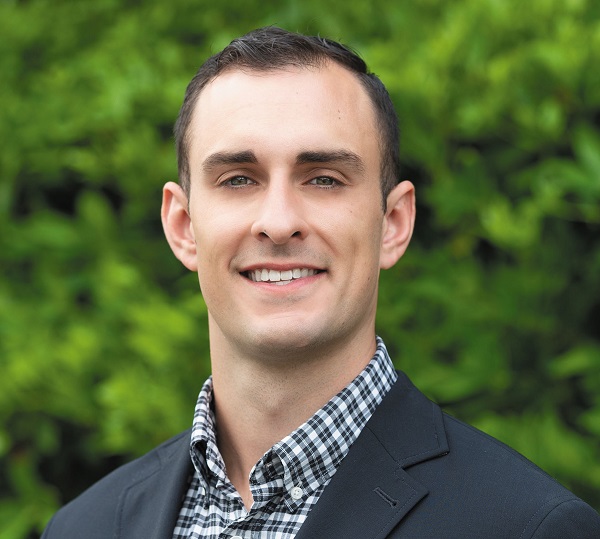 Jeb Blazevich
Jeb Blazevich
Client Advisor
Atlanta
Age: 27
Go-to drink order: Cream with a little coffee—or bourbon on the rocks
Desired superpower: Teleportation
Favorite candy: Not a candy guy
Why did you choose insurance as a career?
When I was recruited to play football at the University of Georgia, I had no idea what I wanted to study—I just knew I wanted to do something in business. My adviser suggested exploring the risk management insurance program, but I didn't pick it as a career until I worked in account management for several years.
I almost left the industry out of frustration. I was fed up with our health care system and lack of transparency, but I started strategizing ways to simultaneously serve my clients' budgets and the well-being of their employees. That was when I chose insurance as a career because I felt like I could tie my values to my professional work.
Biggest health insurance challenges?
Trying to find workarounds. There is no transparency and the high costs of pharmacy claims are ever-increasing. If we had more transparency in our healthcare system, it would solve a lot of problems.
Pros and cons of multiple generations in the workplace?
The gray wave is here. I saw that as an advantage: to be a young guy in an older game. I can learn from those more senior in the industry and relate to people across different generations in the workforce. As long as you have respectful, open-minded people willing to improve their craft, there is no con to having too many perspectives in the room.
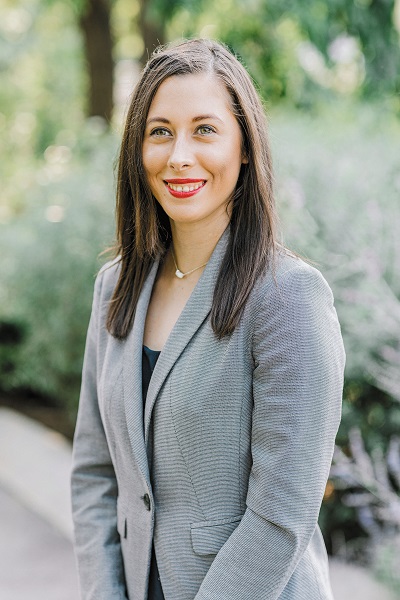 Krista Kautz
Krista Kautz
Commercial Lines Producer
Edmond, Oklahoma
Age: 29
Go-to drink order: Craft beer
Desired superpower: Teleportation
Favorite candy: Sour punch bites
How did you get started in insurance?
I started as a receptionist for an agency that insures a lot of oil and gas. Members of my family worked in the oil and gas industry, so some of the terms were not new to me. As I processed all the documents and pulled things from portals and put them into systems, I began to pick up insurance terms. When an account manager announced she was going to go on maternity leave, the agency asked me to get licensed and take over as an account manager. I didn't necessarily like all the processing that an account manager does and valued building relationships and sales far more—that's why I'm now a producer.
Mentor or role model?
I think that it's really important to find a mentor or role model no matter what role you have in this industry. I'm participating in the Big “I" national Young Agents Committee's mentorship program, and my assigned mentor is Daschle Larsen, a national young agent leader. Also, one of the owners of Berrong Insurance, Stewart Berrong, is also my mentor, and he helps me with day-to-day challenges and goal setting.
We're doing a mentorship program on a state level as well, for the Big I Oklahoma's Future Insurance Leaders of Oklahoma (FILO). Not only am I being mentored, I'm also mentoring.
Industry challenges?
Perpetuation. Are agencies willing to allow an employee to come up and take over the agency, or would they rather sell and be acquired? Even if it's not keeping the agency “in the family," agencies should try to stay “family owned and operated" by redefining that term. Employers claim that their employees are part of their family, so why not treat it that way and pass that legacy down to them? No one's going to know that legacy better than the people that have helped to uphold it.
Risk Advisor
Hattiesburg, Mississippi
Age: 24
Go-to drink order: Tequila on the rocks with lime
Desired superpower: Flying
Favorite candy: Pop rocks
Biggest benefit of participating in Gamma Iota Sigma?
All the industry exposure I was able to get by attending their conferences. I was able to learn about job opportunities and the industry, and it's how I found the company I work for. Getting involved with GIS helped me find a job right out of college. GIS put on conferences that dozens of companies within the insurance industry attend. GIS is educating students about the industry by simply letting them talk to different carriers, brokers and agencies, which sheds light on all of the different directions you can go in this industry. That's how I decided that I wanted to begin my career on the broker or agency side.
Industry challenges?
The property market is very challenging. In the past three years, the losses for insurance carriers on the property side have increased dramatically, as well as construction costs increasing more than 30% in that same period. It's made affordable coverage very hard to get, especially on coastal-exposed properties.
Millennial and Gen Z stereotypes?
I'm not a millennial, but I know that a lot of people say they're lazy. I've worked with tons of people from that generation, and they're hard workers who strive to get out and make a difference every day. And then as far as Gen Z stereotypes, which is the category I'm in, I don't agree with the thought that we all rely on technology to answer all our questions. I believe in talking to experienced people or picking up a book. The internet can steer you in the wrong direction without you even realizing it.
Future of the insurance industry?
I see the industry becoming more automated. This is good because it leaves less room for human error, but it also has its downsides. This is a relationship-driven business, and sometimes less is more when it comes to technology.
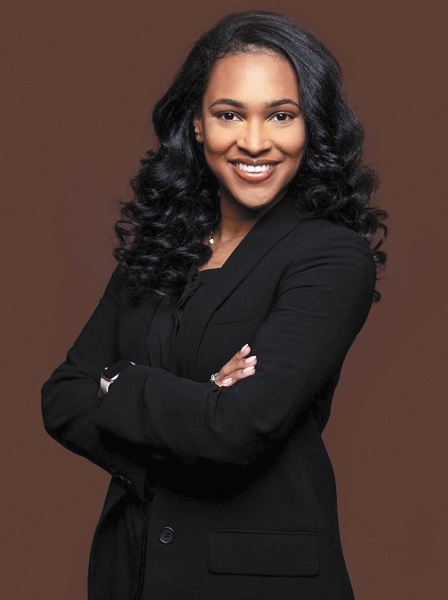 Kristin Swanson Scott
Kristin Swanson Scott
Vice President of Operations
New Orleans
Age: 29
Go-to drink order: French 75
Desired superpower: The ability to multiply and be everywhere at once
Favorite candy: Now and Later
How did you get started in insurance?
My grandfather started our agency back in 1985. It was a big deal because it was one of the few Black-owned agencies at the time. I've worked here since I was 11, starting at the bottom with shredding papers and answering phones.
By the time I got to college, I wanted nothing to do with it. I wanted to be a veterinarian. But when I got to Louisiana State University, it was very rural veterinary medicine. I wanted dogs and cats and they wanted me to deal with cows. I switched to accounting, and it wasn't a good fit either. I called my grandpa and said, “I think I'm ready to come home and work at the agency," and he said, “Come on home. I knew you weren't going to like those cows!"
Best part about being an independent agent?
It's allowed me to live the life I want. We work hard, but it allows me to have flexibility for my family. I'm totally fulfilled in my work because of what we do for people. They think there are no other options, but we have them.
Goals for the future?
My overall goal is to make our office so appealing to my daughter that when she comes of age, she isn't running away from it the way I did. That means investing in as much technology as we possibly can to streamline things. We're reinvesting in our internship program, and we're going to have three interns this year.
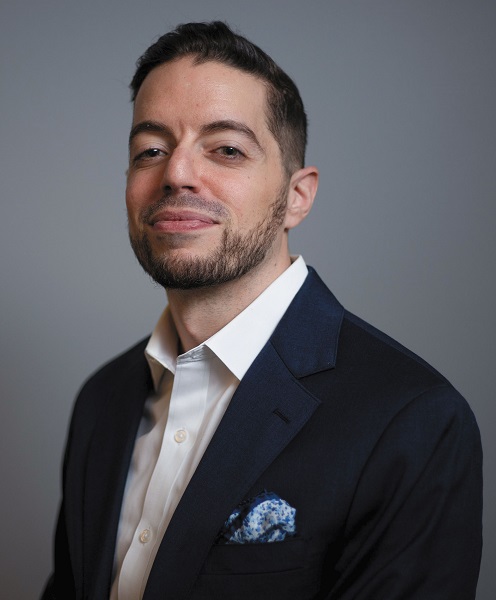 Shawn Fitzgerald
Shawn Fitzgerald
Principal
Melville, New York
Age: 34
Go-to drink order: Black coffee
Desired superpower: To be in multiple places at once
Favorite candy: Not a candy guy, but growing up Milky Way and Twix were my favorites
Why did you choose insurance as a career?
I learned very early on that the more you put into the insurance space, the more you'll be rewarded. As I grew into the industry, I started to realize how the insurance industry is furthering societal good through the facilitation of risk. The indemnification of loss is a societal good, and that makes me feel good about what I'm doing.
What's the best part about being an independent agent?
You get to prospect and work in niches that you're passionate about and enjoy. If you're passionate about restaurants, you can build a niche in that. And then five years later, if you don't love it as much but you've started to love fine arts, you can pivot into that.
Restaurants is a niche I'm definitely passionate about. I also have some family members that are in the construction space, so I know it very well and it gives me extra motivation to want to help people. If you're going after markets that you're passionate about, it's going to give you a big advantage over your competition.
Advice for other young agents?
If you do the right thing and do what you say you're going to do, you'll be leaps and bounds ahead of your competition. And something my mentor shared with me is: Keep It Simple Stupid (KISS). We love to complicate things. Keep it simple, execute your plan and have patience because you're not going to make a ton of money in the first couple of years.
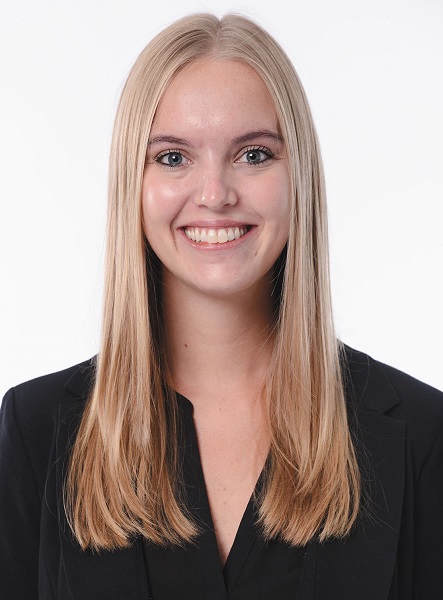 Brooke Feldmeyer
Brooke Feldmeyer
Commercial Lines Risk Specialist
Columbus, Ohio
Age: 23
Go-to drink order: Cold brew with almond milk
Desired superpower: Flying
Favorite candy: Anything sour
Biggest benefit from Gamma Iota Sigma?
During my time as a member of GIS, I served as both the president of the Alpha Chapter at The Ohio State University and as an international student representative, which is a national student leadership position. The biggest benefit I experienced was the opportunity to lead and transform the organization on campus into something bigger and better than what it had ever been before. I really wanted students to have the opportunity to be involved and have a family on campus.
Why insurance as a career?
I wanted to follow in my dad's footsteps. He's been an independent insurance agent for over 30 years, and he is my biggest role model. I decided I wanted to be in business when I was a sophomore in high school, but I didn't know exactly what I wanted to do. That's when I started having conversations with my dad about his experience in the insurance industry and what he does on a daily basis. I immediately knew I could see myself pursuing his exact same path.
My first step was pursuing a double major in insurance and finance in college at Ohio State University while interning with Cincinnati Insurance every summer of college. After graduating, I came on board at Overmyer Hall Associates. Ohio State, Cincinnati Insurance and Overmyer Hall Associates have given me the best start in the industry I could have ever asked for.
Biggest industry challenges?
The lack of interest from young professionals. People often don't consider insurance as a career because they associate it with negative stereotypes, but they just don't understand how in-depth, complex and fulfilling our industry is. There are so many opportunities within the industry and oftentimes recent college graduates don't see that.
I think the solution is getting involved in universities and getting more face-to-face experience with students—whether it's career fairs, student organizations or lectures. The more ways companies and agencies can get in front of colleges the better.
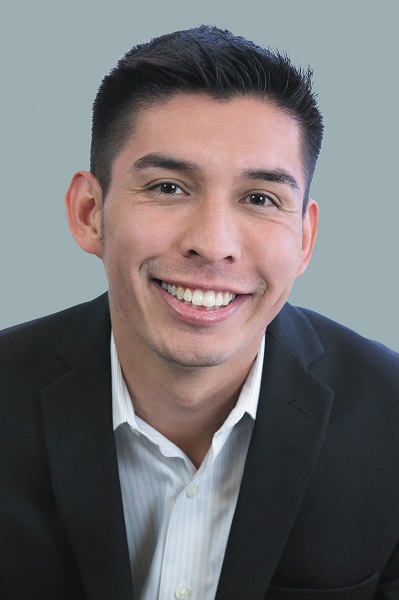 Andrew Silva
Andrew Silva
Financial Risk Management
San Francisco
Age: 35
Go-to drink order: Iced coffee
Desired superpower: Time travel
Favorite candy: Sunflower seeds
Why did you choose insurance as a career?
I didn't have any visibility into the industry growing up, no family members, friends, or colleagues in insurance. I graduated from California Polytechnic State University, San Luis Obispo, in 2010, and everyone was still dealing with the aftermath of the 2008 economic crisis. I knew I needed to think outside the box. One of my now colleagues from Woodruff Sawyer posted an opening at the agency on a graduate email chain, so I applied.
Throughout the interview process, everyone I spoke to talked about the opportunity and Woodruff Sawyer's desire to bring in younger voices. That sold me. Today, I'm in the management liability practice, managing directors and officers insurance (D&O) for my clients. I was the youngest guy there at first, but I realized my competitive advantage while working with tech companies. I understood the technology, used some of those apps every day, and was able to identify and understand the tech being developed here. Woodruff Sawyer gave me those opportunities and fast-tracked me by letting me take on challenges.
Mentoring the next generation?
Every year since I've graduated, I've gone down to Cal Poly and presented for the finance club on behalf of Woodruff Sawyer about the sector as a whole and different lines of coverage. My message to them is you can create your own path in the insurance industry because it's changing every day.
Biggest industry challenges?
With the potential economic crisis, a lot of companies are really focused on cost-cutting and looking to automate insurance. But every day in the news there's a new headline about a company failure, bank failure or natural disaster. With so much going on, it takes the human element and an in-depth knowledge of our client's business to creatively solve their challenges. The wall we're trying to break down is proving we're not just a line item on their expense books, but a member of the team.
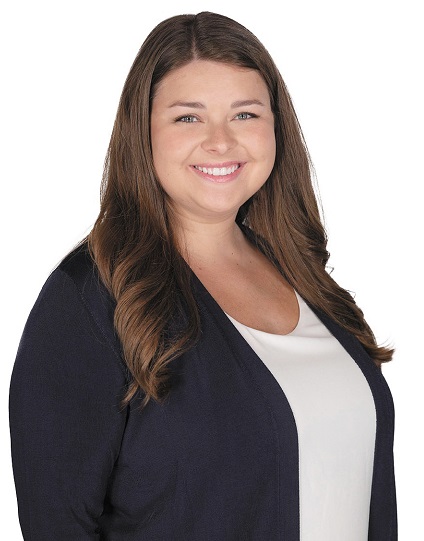 Ashton Fee
Ashton Fee
Commercial Lines Team Leader
Hutchinson, Kansas
Age: 27
Go-to drink order: Cold brew coffee
Desired superpower: Teleportation
Favorite candy: Reese's
How did you get started in insurance?
I was introduced to the industry by my uncles, Bob and Allen, who are our agency principals, about four years ago. I had recently graduated from the University of Kansas and was back home in Hutchinson working. It wasn't until I came to Fee and started learning that I could tell the industry was a good fit for me.
Biggest industry challenges?
Automation and generational changes in the way that people do business is a challenge. The “click a button and get a quote" mentality. It just means we have to continue bringing value by providing expertise and service and building strong relationships.
What do you love about insurance?
There's so much to learn. It's like a big puzzle to think of someone's business and what coverages are needed to address their specific set of risks. With account management, I love the balance of building relationships but also getting to work behind the scenes with numbers and quotes.
Goals for the future?
Keep learning, help develop our commercial lines team and work toward implementing some new technologies we've been talking about. I would love to feel like an expert in the field after years and years of experience, but you never stop learning in this industry, so maybe that's impossible.
Pros and cons of multiple generations in the workplace?
The expertise of those with more experience is a huge pro that far outweighs any minor cons. I love having so many people with years of experience that I can go to and talk with.
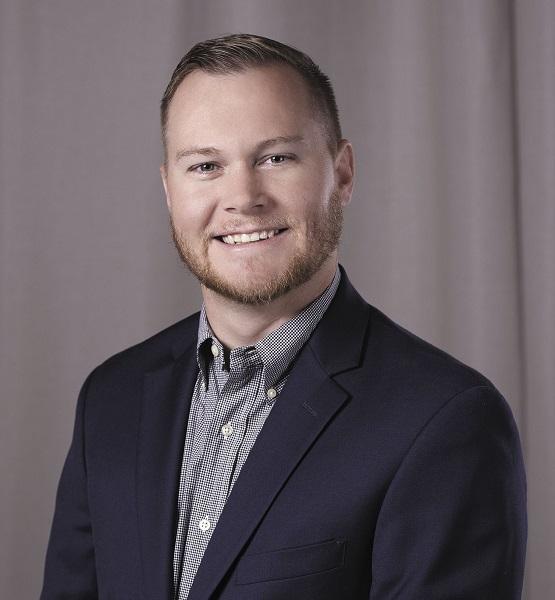 Joseph Iten
Joseph Iten
Commercial Lines Agent, Chief Technology Officer
Davie, Florida
Age: 30
Go-to drink order: Café Bustelo
Desired superpower: Teleportation
Favorite candy: Not a sweets person, so fried food is my guilty pleasure
Why did you choose insurance as a career?
I'm a third-generation agent. My grandfather was a captive agent, and my father was too until he made the switch to become independent in 2008. I've known what an underwriter is since I was 4 or 5 years old, listening to the conversations around the dinner table. After I graduated from college, they asked me to join the commercial lines department, and I've been here ever since. I've learned a lot, and I love it. I started in a hard market that softened up, and now we're back in a hard market again.
Biggest industry challenges?
In Florida and several other states, it's carrier access. Homeowners has been a major problem here in Florida, but the property market in general is an issue. There's nowhere to go with it. We've had 15 property insurers go insolvent since 2020. Thankfully, the Florida legislature passed Senate Bill 2A, which should increase property coverage options, and that should provide some relief for the industry. It's been stressful to have those conversations with clients and it's put a lot of pressure on our staff, but luckily, we can have more positive conversations with some relief coming.
Pros and cons of multiple generations in the workplace?
You can't really learn the experience and knowledge of the older generation from a textbook. I've learned a lot from my father, who learned a lot from his father. You can't put a dollar value on that. Cons: When I came out of college, the agency was still mailing paper applications. It's been a push for me to bring everything up to speed and teach the older generations to use technology like e-payments and e-signatures.
AnneMarie McPherson Spears is IA news editor.
